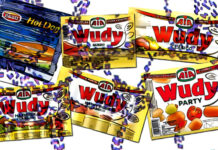On December 23, 2024, the Italian Ministry of Health issued a circular to the health departments of all Regions and autonomous Provinces, to recall the information obligations on the list of ingredients of loose and pre-packaged food products. (1)
Such information is essential to ensure food safety for consumers with food allergies and intolerances (e.g. celiac disease). And yet, more than 20 years after the relevant requirements were introduced, they are often lacking in stores and public establishments.
1) Loose and prewrapped foods, the dutiful information
All foods offered for sale without pre-packaging in commercial establishments, the Ministry of Health emphasizes, must come with the name of the food and the list of ingredients. (2,3,4)
Substances or products that may cause food allergies or intolerances listed in Annex 2 of Food Information Regulation (EU) 1169/11 must be distinguished with graphic evidence, from other ingredients. (5)
2) Method of information
The above indications must be made available, specifies the Ministry of Health:
– ‘in Italian;
– clearly visible and legible;
– directly on the product or next to the product, on the product container, on the appropriate sign or register or other equivalent system, including digital, near the product display counters’.(1)
3) Forbidden confusion
The food information should never mislead the consumer about the nature and composition of the food products. (6) Accordingly, it is forbidden, as already clarified by the European Commission in areas of competence, to report to:
– ‘single list’ of ingredients. It is forbidden to cite the list of ingredients used in the overall preparation of the products displayed for sale. Vulnerable consumers must be able to understand which individual foods are safe for them;
– category of ingredients. It is forbidden to indicate allergens with the names of the product categories alone (e.g. ‘nuts’, ‘cereals containing gluten’). On the contrary, it is mandatory to specify their identity, since allergies are specific;
– ‘may contain…‘ all the substances listed in Annex II to Regulation (EU) 1169/11. As is often observed in the single (prohibited) signs of the ingredients of some pastry shops and ice cream shops, where the possible presence of fish, molluscs and crustaceans still appears (!).
4) Hygiene Package and allergen culture
Food Hygiene Regulation (EC) 852/04, as seen, has been integrated by Regulation (EU) 2021/382 which introduced new requirements for all operators in the agri-food chain specifically regarding allergens.
Operators in the primary production, processing, serving of food – including small and medium-sized enterprises – must introduce an ‘allergen culture’ that is expressed in:
– application of good hygiene practices aimed at preventing accidental contamination with allergens
– analysis of the risks of ‘cross contamination’, on the basis of which to define precise information for consumers
– training of all personnel involved in activities relevant to these objectives. (7)
5) Official public controls, the circular of the Ministry of Health
The circular under review by the Ministry of Health, General Directorate for Food Hygiene and Safety and Prevention:
– derives from the reports received by the Directorate ‘concerning the marketing of products without pre-packaging, or packaged on request at the point of sale or pre-packaged for direct sale, lacking ingredient list information’, and
– reiterates the invitation to the Health Departments of all Regions and autonomous Provinces, ‘through the Local Health Authorities’, ‘to monitor compliance with current legislation by operators’. After having underlined ‘the importance and impact of the issue on the consumer’.
6) Public establishments, collectivities, food delivery
The aforementioned rules and controls it should be remembered, also apply to public establishments and other collectives (e.g., bars, trattorias, pizzerias, fast-food restaurants, canteens, catering establishments) that administer food, even free of charge.
Remote sales and/or serving activities (e.g. online shopping, food delivery) also have the duty to specify in writing, as appropriate, the list of ingredients and the presence of allergens in individual foods (8,9).
7) Provisional conclusions
The food safety risks associated with the accidental contamination of foods with allergens or their inaccurate information to consumers are very serious under both variables of the danger level, which is potentially lethal, and the high probability of occurrence. (10)
The level of protection of vulnerable consumers is still low, in Italy and in other countries of the European Union, as has been seen (11,12). And it cannot be improved until the European Commission has established uniform rules for risk assessment and information. (13)
Dario Dongo
Footnotes
(1) Ministry of Health, former General Directorate for Food Hygiene and Safety and Prevention, Director General Dr. Ugo Della Marta. Circular 0048603-23/12/2024-DGlSAN-MDS-
(2) Dario Dongo. Bulk and pre-wrapped foods, community. GIFT (Great Italian Food Trade). 19.3.18
(3) Dario Dongo. Food designation. FARE (Food and Agriculture Requirements). 19.8.17
(4) Dario Dongo. Ingredient List, ABC. GIFT (Great Italian Food Trade). 6.3.18
(5) Dario Dongo. Allergens, European Commission guidelines. GIFT (Great Italian Food Trade). 15.9.17
(6) Reg. (EU) 1169/11, articles 7.1.a, 36
(7) Dario Dongo. EU Reg. 2021/382. Allergen management, safety culture, food redistribution. GIFT (Great Italian Food Trade). 9.3.21
(8) Dario Dongo. Ecommerce, what responsibilities. GIFT (Great Italian Food Trade). 24.2.18
(9) See paragraph 3.1 of the previous article by Dario Dongo. Food delivery, food safety risks. GIFT (Great Italian Food Trade). 27.8.23
(10) Questions are raised, among other things, about the lack of registration of alert notifications by Member States on the RASFF system. See paragraph 3.6 in the previous article of Marta Strinati. Contaminated food and food fraud in the EU. ACN Report 2023. FT (Food Times). October 7, 2024
(11) Dario Dongo. Allergens at the restaurant, death of an English girl in Rome. GIFT (Great Italian Food Trade). 31.10.24
(12) Dario Dongo. Allergies in restaurants, danger guaranteed. German study. FT (Food Times). May 26, 2019
(13) Dario Dongo, Andrea Adelmo Della Penna. Food allergens, urgently needed guidelines in EU. Position paper. 1.11.24
Dario Dongo, lawyer and journalist, PhD in international food law, founder of WIISE (FARE - GIFT - Food Times) and Égalité.








